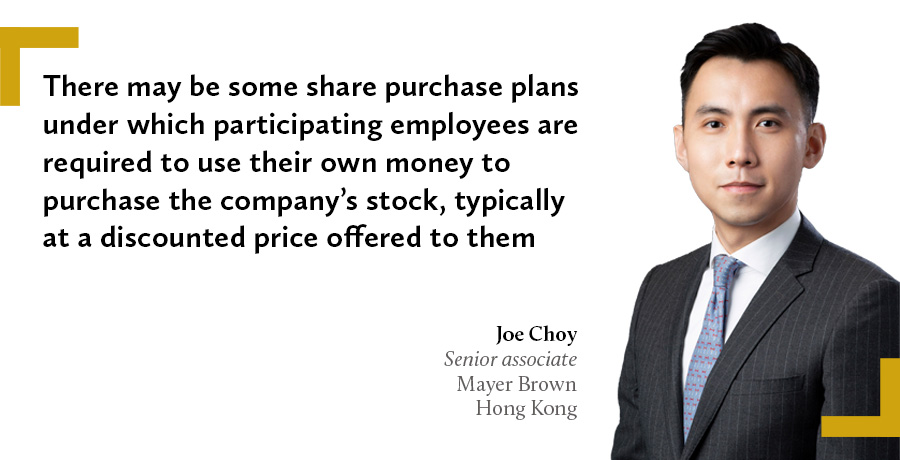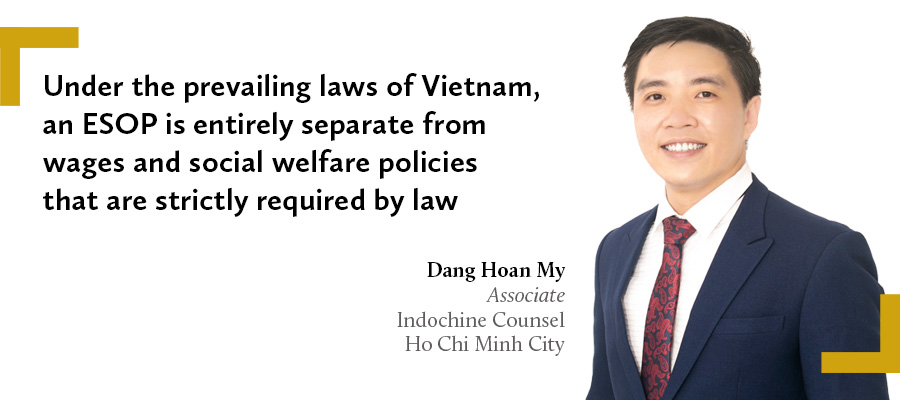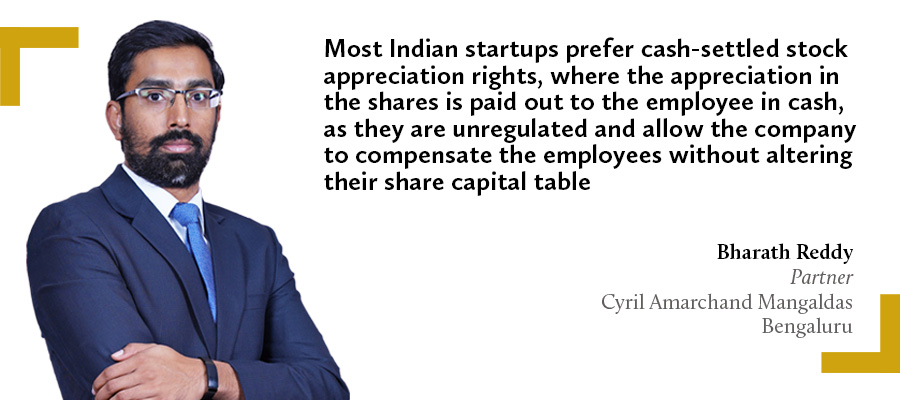With new and burgeoning enterprises waging war over attracting and keeping talent, granting shares to their most formidable knights in exchange for loyalty is ever more popular. Putro Harnowo lends clarity to the myths and misconceptions
As the startup ecosystem in Asia matures, companies need high-quality talent to accelerate growth, but find their limited funding is only adequate to scale up operations, leaving fewer resources to hire and retain workers. This makes feasible a benefit plan that gives employees the right to purchase the company’s shares at a predefined or discounted price, called the employee stock ownership plan (ESOP).
Stock ownership has become a staple offering in developed economies and resulted in employees’ sudden wealth. When South Korean vaccine developer SK Bioscience went public on the local stock market last year, the company not only raised USD1.3 billion but also brought a fortune of KRW949.7 million (USD750,000) in share valuation for each employee invested in the ESOP, according to the local Maeil Business Newspaper.
Chae Jooyup, senior vice president of the Korea In-house Counsel Association (KICA), observes that many prominent lawyers have left law firms to join startups after being lured with stock options, granting a right to purchase a specific number of shares at a set price.
“The benefit of exercising those stock options could be greater than the monetary compensation,” says Chae. “Normally, the monetary compensation in a startup is lower than that of big law firms, but if you are willing to take the risk, then you may have a chance to make a lot of money by waiting for the stock price to rise.”
Chae explains that stock ownership plans may include stock options and restricted stock units, among others. The stock option is more common among Asian startups, while restricted stock units are mostly offered in big multinational companies, where employees receive company shares through a vesting plan and distribution schedule after achieving performance milestones or remaining for a particular time.
Many success stories can be found to highlight the advantage of stock ownership plans among startups, but the lack of clarity in legal frameworks has also resulted in confusion. In Vietnam last year, for example, Grab asked its former employees to give up their shares in exchange for a payout pegged to the company’s valuation before its IPO, as the country only allows current employees to own shares of foreign companies that employ them, as reported at news website Tech in Asia in late 2021.
Marshall Pribadi, CEO of digital signature provider PrivyID and chairman of the Indonesia Regtech and Legaltech Association in Jakarta, says that an ESOP is a good tool for employee retention when the employees can see the value of the company. An employee will not only be part of the company, but also an owner to some degree, which can be a great motivator.
However, “ESOPs should be an option, while in practice some companies are forcing their employees to purchase the company shares,” cautions Pribadi. “It’s not an option, but rather an obligation, where the company deducts a certain percentage from the employees’ monthly salary to buy the company shares.” Pribadi says this requirement is quite common among big startups in Asia, and is not an ideal situation.
Soft options
Zhang Guanglei, a partner at Jingtian & Gongcheng in Beijing, says the rationale behind ESOPs is to encourage employees to improve performance and stay with the company in the mid to long term, while benefitting from the company’s growth. If employees find this unappealing, they have the right to say no.
“Some companies are reported to require employees to participate in the ESOP, probably because the company is short of funds or wishes to keep their stock price up,” says Zhang. “From a legal perspective, there is no legal basis for companies to force employees to purchase the company’s stocks unless the employees agree.”
Zhang adds that employees should not be subject to any negative implications if they refuse to purchase the companies’ stocks, such as forced termination or a salary cut, which would be inconsistent with employment laws in China.
In South Korea, it’s not possible under the law to mandate an employee to purchase stock, says Chae, of SK Biopharmaceuticals. Although an ESOP may be offered to all employees, it is up to the employees whether or not to purchase the company’s shares.
“Employees may feel some pressure to purchase the stock, but a company cannot make them via a contract, or officially enforce that provision,” says Chae. He adds that ESOPs in South Korea are mandated by the Framework Act on Labour Welfare, which states that 20% of newly issued stocks must be allocated to the employees of the company when the company does an IPO.
“What is unique in Korea is that the representative director or registered directors are excluded from being recipients of the ESOP because they are deemed as the executives,” says Chae. “Other employees are given the ESOP according to their length of service. If someone works in a company for a longer period, he or she will get more rights to purchase the shares.”
Joe Choy, a senior associate at Mayer Brown in Hong Kong, says that most ESOPs do not mandate employees to purchase the company’s stock. A stock option provides a right, not an obligation, to purchase underlying stock, while a stock award is typically issued without charge.
“There may be some share purchase plans under which participating employees are required to use their own money to purchase the company’s stock, typically at a discounted price offered to them,” says Choy. “However, this is not the mainstream in Hong Kong and, even for these plans, the employees are generally allowed to elect whether to participate in the first place.”
While East Asian jurisdictions seem quite advanced in regulating equity compensation, a different scene prevails in Southeast Asia. Joel Shen, a partner in Singapore at Withersworldwide, says the ESOP is not well understood as an employee incentive tool among startups in the region.
“The tech industry in Southeast Asia is very young compared to the more mature economies,” says Shen. “When North American companies like PayPal, Google and Facebook are listed on the stock market, many of their early employees became millionaires. However, there are very few unicorns in Southeast Asia that have gone public in the past few years where employees can exercise their stock options.”
When it comes to the legal framework, Shen adds there is no ESOP-specific regulation as the company laws of each jurisdiction already exist for regulating shares. To the extent of issuing options, contract laws are available to regulate that, as options are not shares or property but contracts.
Dang Hoan My, an associate at Indochine Counsel in Ho Chi Minh City, says Vietnamese laws do not require a joint stock company to put an ESOP in place before going public, nor provide any regulations for remedy in any issue arising when the employee exercises the stock option.
“Under the prevailing laws of Vietnam, an ESOP is entirely separate from wages and social welfare policies that are strictly required by law,” says Dang. “In theory, whether to purchase the company’s stock through an ESOP will be based upon the employee’s consideration and decision.”
In India, where the startup ecosystem flourishes, Cyril Amarchand Mangaldas’ partner in Bengaluru, Bharath Reddy , says that ESOPs are prevalent because private equity and venture capital firms make it mandatory for companies to have an ESOP programme in place prior to their investment.
Although Indian law does not mandate the issuance of an ESOP, Reddy says unlisted companies are required to comply with the Companies Act, 2013, and the Companies (Share Capital and Debentures) Rules, 2014, while listed companies are required to comply with the Securities Exchange Board of India (Share Based Employee Benefits and Sweat Equity) Regulations, 2021, for the issuance and implementation of an ESOP.
The Companies Act, 2013 read with the Companies (Share Capital and Debentures) Rules, 2014, set out the treatment of an ESOP when an individual ceases to be an employee of the company, and prohibit companies from varying their terms to the detriment of the interests of the ESOP holders. The 2021 regulations issued by the Securities Exchange Board of India govern all share-based employee benefit schemes dealing in securities, including employee stock options, employee share purchase, stock appreciation rights, general employee benefits and retirement benefits.
“Certain sector-specific regulators, such as in the banking and insurance sectors, have additional conditions for companies to comply with,” says Reddy. “These laws, aimed at protecting the interests of the ESOP holders, regulate the implementation by companies.”
Apart from an ESOP, Reddy explains that Indian startups also adopt other equity-linked compensation schemes, such as stock appreciation rights that entitle an employee to receive appreciation in shares or cash, and restricted stock units, where the stock options are granted at the minimum price under law.
“Most Indian startups prefer cash-settled stock appreciation rights, where the appreciation in the shares is paid out to the employee in cash, as they are unregulated and allow the company to compensate the employees without altering their share capital table,” says Reddy.
You must be a
subscribersubscribersubscribersubscriber
to read this content, please
subscribesubscribesubscribesubscribe
today.
For group subscribers, please click here to access.
Interested in group subscription? Please contact us.




























